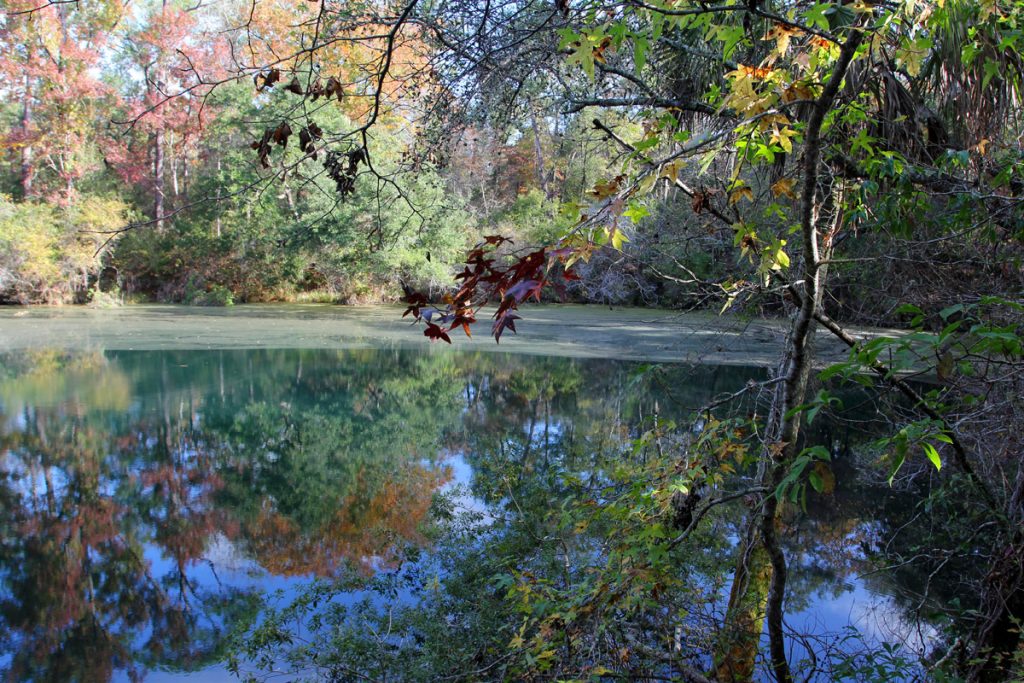
The Resurrection of Cherokee Sink
As a teenager, I was part of the problem. I’d join friends in visiting places like Cherokee Sink in Wakulla County and we rarely brought back our trash. We were not alone. The place was ringed with litter and cuts from broken glass was commonplace.
A few years later, in the early 1980s, I vowed to become part of the solution. I helped to organize a massive clean-up effort of Cherokee Sink. Almost 150 large garbage bags were filled, mostly with beer bottles and cans and we posted signs asking people not to litter. A few weeks later, the ring of litter returned. The mindset of most visitors was that Cherokee Sink was a fun place to swim and party and few rules applied. The emerald 77-foot-deep sink was suffering. Erosion was prevalent along every shore. Trees were scarred by steps nailed into trunks for climbing and jumping. Stolen vehicles had been rolled into the deep waters on more than one occasion and it was rumored that graves from the 19th century Causseaux Cemetery near the South shore had washed into the sink and that coffins rose to the surface on a full moon. This was how we were treating a window to our precious aquifer?
After Wakulla Springs became a state park, Cherokee Sink was added to the park boundaries in 1999 and a long restoration process began. Erosion control measures were put in place, the shorelines re-contoured, filled and re-vegetated. Divers brought up a vehicle, a boat and other trash from the bottom (but no coffins!). Most importantly, the road to the sink was closed, requiring visitors to hike a mile. This change reduces the amount of potential litter that can be carried in. Plus, alcoholic beverages are now prohibited.
On a recent fall day, my wife and I hiked the Cherokee Sink Trail. A short hike was in order since I was recovering from hernia surgery, so a two mile round trip was perfect. We followed deer tracks along the old entrance road that was slowly being canopied by tree limbs. So many leaves were falling that we could hear them hitting the branches. Once along the expansive sink-250 feet wide at its broadest point, thus one reason it is considered to be a sinkhole lake-boardwalks led to three scenic overlooks. We scared up a family of wood ducks and a turtle sunned lazily on a log. Not one speck of litter was evident and erosion was non-existent as well. Woodpeckers rapped on nearby trees and fall colors reflected on the calm surface. Cherokee Sink had been reborn.
Cherokee Sink is easy to find. Take Highway 61 south of the state park entrance about 1.3 miles. A sign on the right marks the access road leading to the Cherokee Sink Trailhead. There is a $4 fee for a carload of up to eight people.
Doug Alderson
Outdoor & Nature Expert


